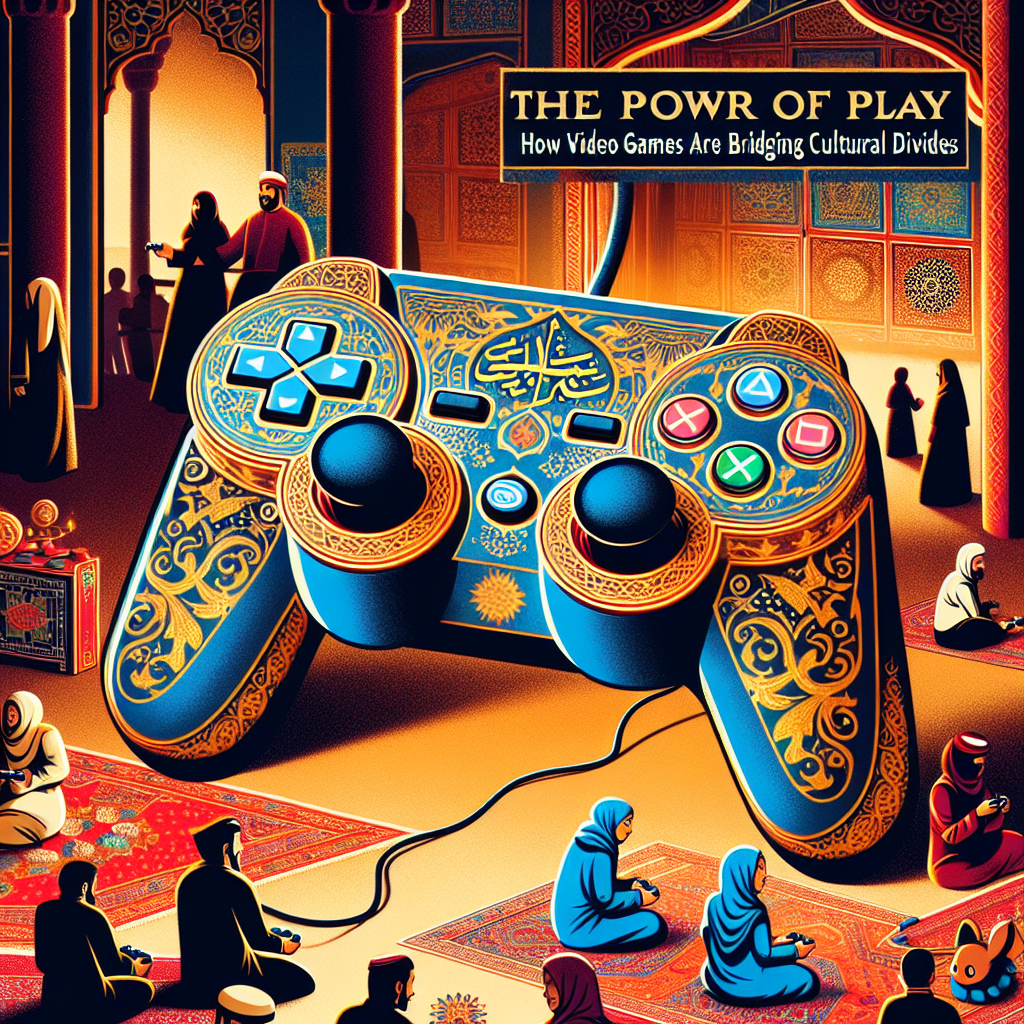The Power of Play: How Video Games are Bridging Cultural Divides in the Middle East
In a region often characterized by political tensions, cultural disparities, and social challenges, an unlikely medium is proving to be a powerful force for unity: video games. While many may view gaming as a pastime, it is increasingly recognized as a dynamic platform for fostering communication, understanding, and friendship across cultural divides in the Middle East.
A Shared Language
Video games, particularly those that enable multiplayer interactions, provide a unique opportunity for players from diverse backgrounds to connect. The immersive nature of games transcends language barriers and cultural differences, allowing players to engage in shared experiences. Titles such as "PUBG," "Fortnite," and "Call of Duty" have huge followings in the Middle East, where players from various nations collaborate to achieve common goals, developing a sense of camaraderie and teamwork.
This shared engagement serves not only as entertainment but also as a bridge to foster understanding and empathy. As players strategize and communicate in-game, they often begin to appreciate different perspectives, forging friendships that might otherwise have been unlikely in real-life situations.
Cultural Exchange through Gaming
The rise of gaming has also spurred a burgeoning developer scene in the Middle East, where local creators are crafting games that reflect cultural heritage and address relevant social issues. Titles like "Unearthing Mars," developed in Jordan, and "Qasr Al Watan: The Game," inspired by the UAE’s presidential palace, are examples of how local narratives can resonate with a global audience.
These games not only celebrate local culture but also offer international players a glimpse into the Middle Eastern way of life. By experiencing narratives rooted in authentic cultural contexts, players can develop a deeper understanding of the region, humanizing what they might only know through news headlines.
Building a Gaming Community
The gaming community in the Middle East has grown exponentially in recent years, bolstered by the rise of eSports and online tournaments. Events like the Middle East Games Con and the Arab Gaming Expo serve as platforms for both amateur and professional gamers to showcase their talents, while also bringing together fans from different backgrounds. Social media and streaming platforms further amplify this community interaction, allowing individuals to connect over shared interests.
These gatherings often feature players from various nationalities, creating a vibrant tapestry of interaction where friendships blossom despite regional hostilities. For many, gaming forums and platforms like Discord have become safe spaces, where differences are set aside in pursuit of common interests.
Addressing Stereotypes and Misconceptions
In regions where political conflict can create societal rifts, video games challenge stereotypes and combat misconceptions. Through gameplay, individuals can engage with one another directly, dismantling prejudices that may have been built upon incomplete information or media portrayals. The familiar environments and characters inside games may reflect stereotypes, but online interaction allows for personal connections that dispel these myths.
Players are more likely to challenge their preconceived notions when they interact with someone from a different background while sharing a love for gaming. These personal interactions prove to be more powerful than any textbook or documentary, contributing to the normalization of relationships between cultures that are often presented as distinct and conflicting.
The Future of Gaming in the Middle East
As the Middle East continues to evolve, so too does its gaming industry. With increased investment and interest from large tech companies, the region’s gaming market is projected to grow significantly. This growth not only represents an economic opportunity but also a chance to enhance cultural understanding and collaboration.
Educational gaming initiatives, such as those that promote STEM skills among young people or localized content that teaches history and social responsibility, also show promise. Gamification—a concept where game-design elements are applied in non-gaming contexts—can stimulate learning about cultural sensitivity, history, and empathy.
Conclusion
The power of play is undeniable, especially in a region like the Middle East, where the ability to connect across cultural divides is vital for fostering peace and understanding. Video games serve as a medium that invites collaboration, encourages cultural exchange, and builds community among individuals from different backgrounds. As the industry continues to thrive, it holds the potential not only to entertain but to empower, bringing people together in ways that transcend the boundaries that too often divide them. In the world of gaming, players are not just competing; they are building bridges, one level at a time.




